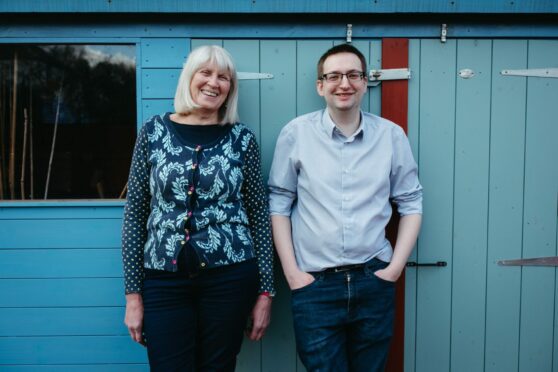
It has forged a life-saving chain of kindness as donors give organs to strangers to get organs for loved ones and, 10 years on, transplant patients have hailed the science behind the miraculous match-ups.
The hundreds of transplants instigated by altruistic donors would not have been possible without a complex algorithm developed in 2012 by a team of computer scientists at the University of Glasgow.
To mark the 10th anniversary of the launch of Altruistic Donor Chains by the UK Living Kidney Sharing Scheme (UKLKSS) and World Kidney Day on Thursday, professor David Manlove, who led the team, told The Post: “The 10 years since the introduction of altruistic donors has been a tremendous success story.
“The total number of altruistic donors who have participated in the UK scheme since 2012 is 455 and actual transplants that have resulted from altruistic donors triggering chains is 629. The NHS states that each kidney transplant results in a saving over a 10-year period of £241,000 – this figure takes into account the release of the patient from costly dialysis. That means the 629 transplants triggered by these altruistic donor chains would give over £150m in savings to the NHS over a rolling period.”
The professor, who developed the ambitious algorithm with colleagues Dr Péter Biró and Dr Gregg O’Malley, receiving the Lord Kelvin Medal for his outstanding contribution to computing science, explained: “An altruistic donor is one who wants to give a kidney but doesn’t have a particular recipient in mind. It might be that in the paired donation pool there is a ‘Donor A’ for a ‘Recipient A’, the donor is a willing donor for that recipient but medically incompatible.
“What might happen is the altruistic donor comes along and is medically compatible with ‘Recipient A’ and therefore can give a kidney to that person. Then in exchange, willing but incompatible ‘Donor A’ gives a kidney and that pays it forward.”
He knows first hand the importance of the organ that removes waste and toxins from the body and regulates blood pressure. His daughter Susan needed dialysis when she suffered a rare kidney complication after contracting meningitis in August 2006 aged 11-months and was cared for at Glasgow’s Royal Hospital for Sick Children. Manlove said: “She wasn’t expected to live to Christmas. During that time, it became abundantly clear how important kidneys were. She was given incredible care.”
Susan is now 16, and although left with brain damage, attends school. The grateful professor said his work with the kidney donor scheme was “an excellent opportunity to give something back in an indirect way”.
It began soon after the UKLKSS set up in 2007, in the wake of the 2006 Human Tissue Act which provided a legal framework for altruistic donation.
Many patients who were difficult to match with a donor had family and friends who wanted to donate a kidney but weren’t compatible by blood group or tissue type. The scheme meant those who needed an organ could pair-up with a friend or family member to be matched with another participating pair, with each receiving a kidney from the other’s pal or relative, and those swaps were managed by the UKLKSS computer system. The University of Glasgow became involved in 2008 when it developed an algorithm to include three pairs. The professor said: “We gave them the ability to be able to search for three-way exchanges as well. It is all about trying to make best use of scarce resource, which in this case is the donor kidneys.”
However, he said there were doubts about the benefit of the longer cycles of six (three pairs) which were logistically much more challenging for the NHS because the surgical removal and transplant of the organs had to happen on the same day to prevent the chain collapsing if one of its participants reneged on their agreement to donate or fell ill.
But, he said: “We were able to run some simulations that demonstrated there would be a benefit in terms of the number of transplants identified in allowing three-way exchanges in addition to two-way exchanges.” That move led to a change in criteria permitting exchanges involving three pairs using an algorithm developed by Glasgow for use in the scheme’s quarterly “matching runs”.
“The introduction of the three-way exchanges adds to the complexity of the computational problem. It took it from a problem that has an efficient algorithm to a problem that becomes computationally intractable. It means it is hard to find an optimal solution and we had to resort to integer programming techniques that involved mathematical modelling.”
Then in 2012, following an NHS Blood & Transplant-funded project, the team came up with software that was “future-proofed” to allow the inclusion of altruistic donors to trigger chains for the first time, and generate even more organs for transplant. The team is continuing to improve and upscale the technology.
Julie Glenn is one of five Living Donor Transplant Coordinators at Glasgow’s Queen Elizabeth University Hospital that covers the west of Scotland. There are a further three at Edinburgh Royal Infirmary covering Borders, Fife, Aberdeen, Tayside and parts of Highland.
She said: “The whole exchange programme is set up around the algorithm that David Manlove and Glasgow University devised. But there is a limit to how many centres can be involved because of the logistics, it is a huge operation behind the scenes. So we have a maximum of three pairs in an exchange and two pairs with an altruistic donor. But it will change eventually.” She said the scheme was looking at “ways of expanding”.
According to NHS Blood & Transplant statistics, 1,346 kidney transplants have taken place across the UK from January 1, 2012 to January 31, 2022, where the recipient was part of its living donor sharing scheme. From April 1, 2017, to March 31, 2021, 45 patients on the scheme were transplanted at the Glasgow hospital and 36 at Edinburgh Royal Infirmary – Scotland’s only transplant centres. The total number of UK transplants that has taken place since the scheme’s inception in 2007 is 1,459.
Manlove said: “The algorithm is just a small part of a very big machine with lots of moving parts; the UK Living Kidney Sharing Scheme has all of the data collection, all of the input and all of the management of logistics and surgery in which we have no part at all.”
The professor, who chairs an international research network looking into collaboration across European kidney exchange programmes, added: “From the work we have done it has become clear that the UK scheme is the biggest in Europe, widely seen as high quality and reputable. This is down to UK Blood & Transplant and the commitment they have from clinicians and NHS staff up and down the country.”
A mother’s story: One day, six operations and three lives transformed
As Janice Gow was being prepped for surgery, Ian Leedham, another fit and healthy patient, was being readied for theatre, 223 miles away.
The retired nurse was at the Queen Elizabeth University Hospital, in Glasgow, Ian was at St James’s University, in Leeds, but both were there to give a kidney to complete strangers so that their own loved ones – suffering from debilitating renal failure and for whom they were not a match – could have a life-changing transplant.
Elsewhere, an altruistic donor who had no relative or friend in need of their kidney but who selflessly wanted to help, was having their kidney removed. After being packed in ice and transported by couriers to waiting surgeons, the organs were ready for transplant. That afternoon, on the operating table at the QEUH, Janice’s grown-up son Alex received the altruistic donor’s organ while in Leeds, his mum’s kidney was transplanted into Ian’s wife Lynne. At the same time, elsewhere in Britain, Ian’s kidney was being given to another recipient on the general kidney transplant waiting list.
One day. Six operations. Three kidneys. Three gifts of a brand new life – and all down to the altruistic donor who kicked off the chain in a system that first came into being in 2012 under the auspices of the UK Living Kidney Sharing Scheme run by the NHS Blood and Transplant service. Janice and Lynne have since become firm friends.
Janice, 64, sister of Scotland’s second Makar, Glasgow-based poet and playwright Liz Lochhead, 74, was no stranger to the concept. Her friend, retired midwife Fiona Hendry from Bishopbriggs, five years ago became an altruistic donor to mark her 60th birthday. Janice told The Post: “Giving a kidney altruistically is amazing. Fiona is a hero. She did it and she was alright, but even without her inspiration, I would have done it.”
Transplant and dialysis options were spelled-out to the Gows after Alex, 35, was diagnosed in 2018 with IGA nephropathy, a condition that before transplant saw his kidney function fall to a dangerous 13%. His family members were either not a blood or tissue match, or not suitable for direct donation. So Alex was paired with the altruistic donor who kicked-off the chain.
Alex, who works in customer service with a Glasgow engineering firm, was lucky to have found a donor on his first matching “run” avoiding the need for dialysis. He said: “Before the transplant I was so exhausted that after work I would go to bed until I had to get up for work again. Now I am full of energy. I go for long walks and I couldn’t do that before. The difference is staggering.
“My mum gave her kidney away for me. At no point did I ever ask her to do it. I was afraid for her. Like any operation, there are risks. The first thing I asked when I came round from my surgery was ‘is mum OK?’ The best thing after the operation was walking through the door of her hospital room with my new kidney. I am hugely grateful to everyone who made it possible.”
Recalling her surgery, Janice added: “I did not feel nervous about my operation. I trusted the transplant and medical teams and I was back in my room three hours after the surgery. I knew Alex’s new kidney would give him his life back; that three people would get kidneys and I am absolutely fit and well. Yesterday I was out kayaking with friends. Alex is transformed. It’s a wonderful scheme; the NHS working at its absolute best.”
In gaining a kidney for her son, Janice also found a friend in Lynne who had asked transplant co-ordinators to send her a letter of thanks. Initially all contact had to be anonymous. She had suffered with renal failure for 18 months and had been on peritoneal dialysis for just over a year. The mum, whose cherished dad died a few weeks after her transplant, said: “I wanted to thank Janice and let her know what a difference she made to my life. When she replied it was very emotional.
“My dad had wanted to see me transplanted and I am so grateful that he did. I did a 6.5-mile walk in the Yorkshire Dales last year. On many days before the transplant, I couldn’t get out of bed. I have bought a tent. I could not go camping when I was in renal failure.”
Although they haven’t met, the mums stay in touch. Lynne said: “We have a lovely friendship. Janice is wonderful, an inspiration. We are planning to meet in Scotland. It’s one of the places I want to explore when we go camping.”
Sisters’ story: My stomach dropped when told we didn’t match then the doctor said there was another way
By Janet Boyle
Transplant survivor Marion Hunter owes her life to the kindness of a stranger and her sister’s place in a chain of love.
Marion Hunter 51 was desperately ill from chronic renal disease and could only hope a kidney from her sister Jackie Keogh, 52, might save her. However, screening revealed they were not a good match and a transplant would only be rejected.
Under the innovative UK Living Kidney Sharing Scheme, the mum from Kilmarnock got a transplant from an altruistic donor, while her sister donated hers to a stranger, whose husband went on to give one to another patient.
Marion had grown up with kidney infections which eventually resulted in kidney disease when she was 21 and they deteriorated until they were eventually only working at only 10% of normal function.
“We have always been very close and as my kidneys deteriorated, Jackie volunteered to donate hers. But we were devastated to discover that despite being sisters we were not compatible and that’s when my consultant asked if we would consider kidney sharing.
“We had never heard of it before but soon realised that it was the surest way of getting a much-needed transplant.”
A chain of mutual compatibility in the UK was set up by their transplant team but the Covid pandemic conspired to delay the surgery.
Jackie said: “When I heard I wasn’t a match, my stomach dropped. We thought that after all these years of speaking about it that this as the end but as we got the bad news, I wondered why the consultant wasn’t as upset as us, or at least solemn.
“Then we were told about the UK Living Kidney Sharing Scheme and we were sent home with a bundle of information to think about it. At first we weren’t really keen. We’d always thought that my kidney would go to Marion and what if my kidney goes, and Marion doesn’t get one?
“But the chain was set up to be done in the same day with me into theatre, followed swiftly by Marion.”
Surgical delays caused by the Covid pandemic meant the sisters waiting for around a year and Marion’s kidney function dropped. The transplant was carried out at the Queen Elizabeth University Hospital in Glasgow.
“The run-up with Covid delays made me think I would believe it was happening only when they anaesthetised me for theatre,” Jackie added.
Jackie went into first and Marion asked the nurse to wheel her past her recovery room for a signal that everything had gone well.
“I looked in to see Jackie in bed, drowsy but with her thumbs up, showing everything had gone well. It was very emotional knowing this was the moment all our plans were about to happen.”
The sisters have recovered over the past year and recent tests show no signs of rejection. Marion is now able to stay up past 9pm whereas fatigue from kidney failure made her too exhausted to stay awake.
They have heard that both their donor and recipient are thriving.
Jen Lumsdaine, lead nurse for Living Donations Scotland, said: “Living donation is the best possible treatment for end-stage kidney failure patients in Scotland.
“There are four matching runs a year in kidney sharing schemes.
“It works through a potential donor coming to us and if they are blood group incompatible and a good match their names are entered into the next matching run which runs quarterly.
“It is the best chance for patients with serious kidney failure to get a much-needed transplant.”
https://www.organdonation scotland.org/living-donation
The good kidney guide
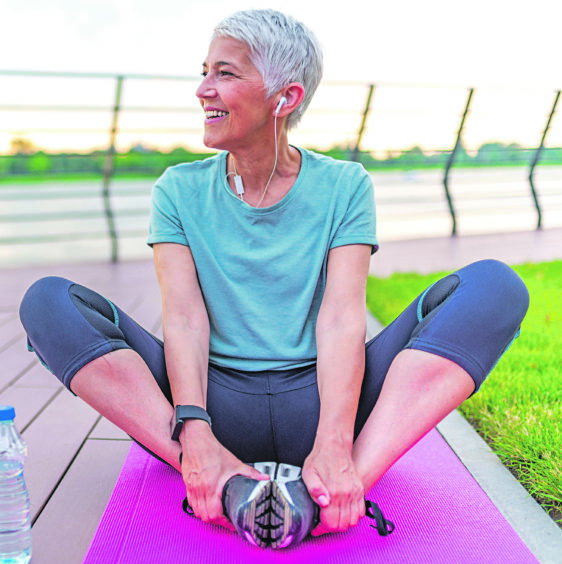
- Stay a healthy weight and try not to have more than a small teaspoon of salt a day.
- Keep diabetes and high blood pressure under control.
- Aim for 30 minutes of physical activity five days a week.
- Stop smoking. It slows the blood flow to the kidneys so they don’t work as well.
- Stay hydrated, and avoid excess alcohol so that the kidneys can do their job properly.
- Use drugs like ibuprofen with caution because they can sometimes harm your kidneys.

Enjoy the convenience of having The Sunday Post delivered as a digital ePaper straight to your smartphone, tablet or computer.
Subscribe for only £5.49 a month and enjoy all the benefits of the printed paper as a digital replica.
Subscribe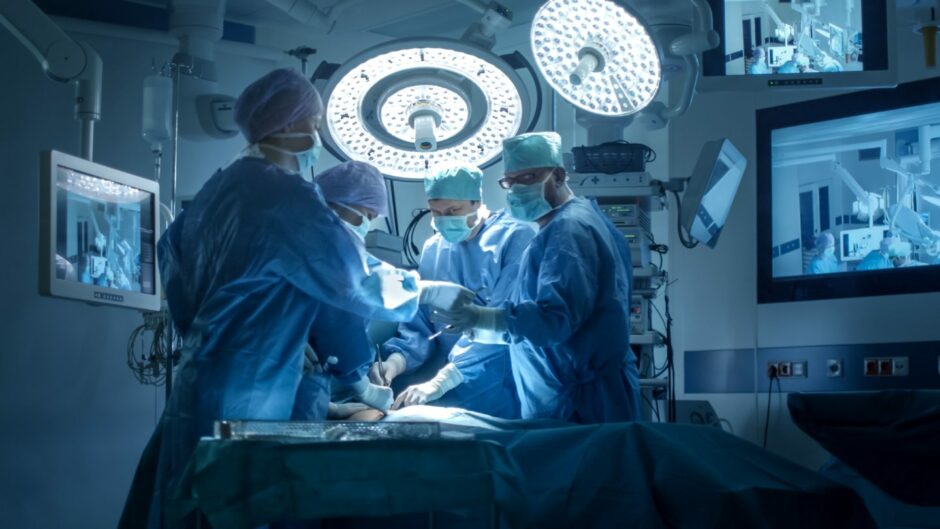
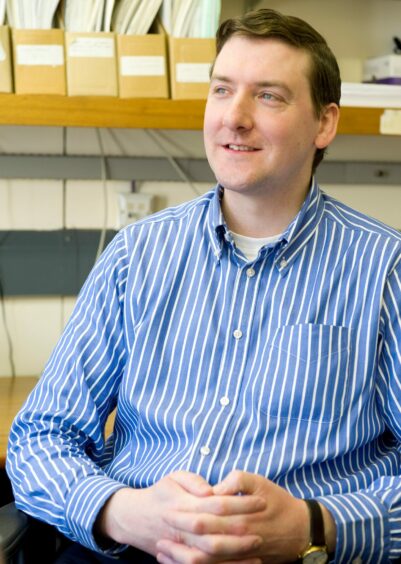
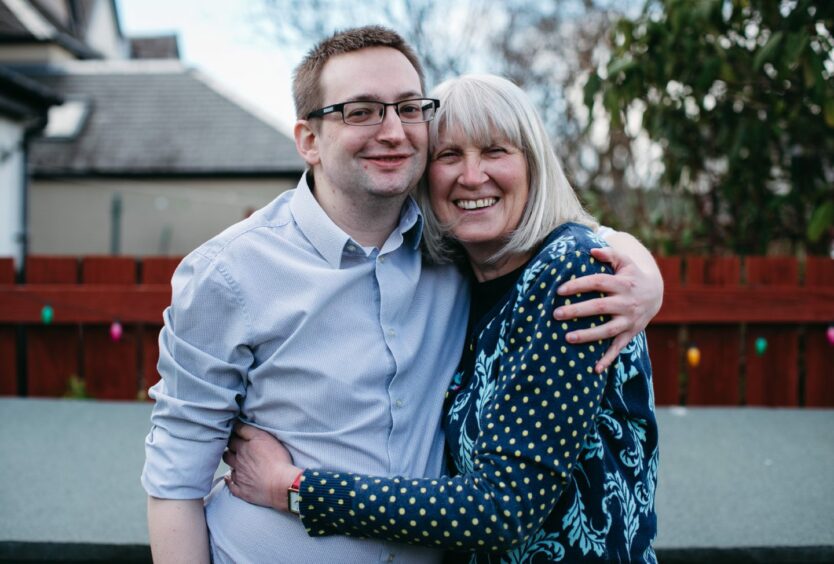
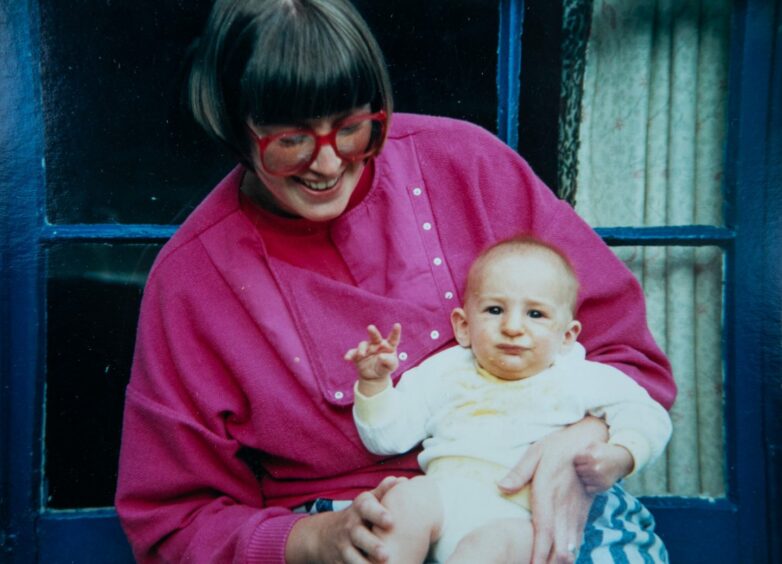
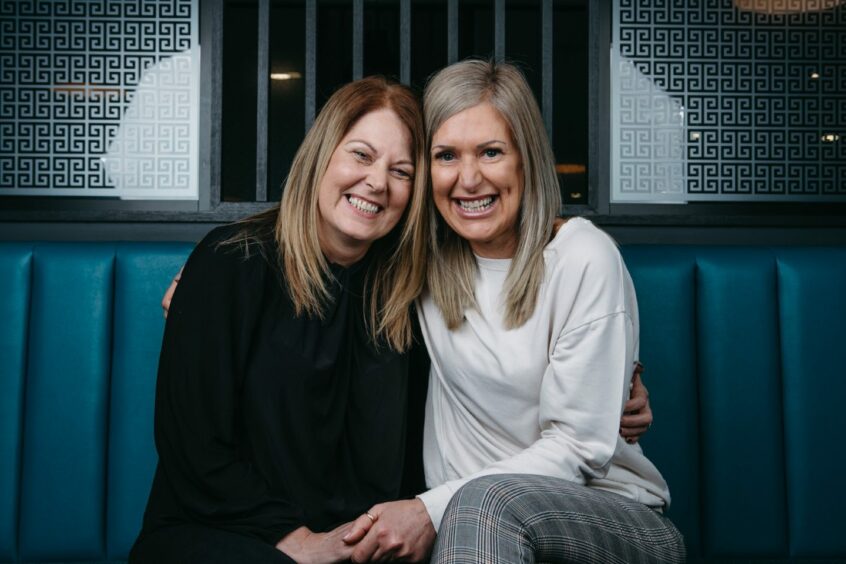
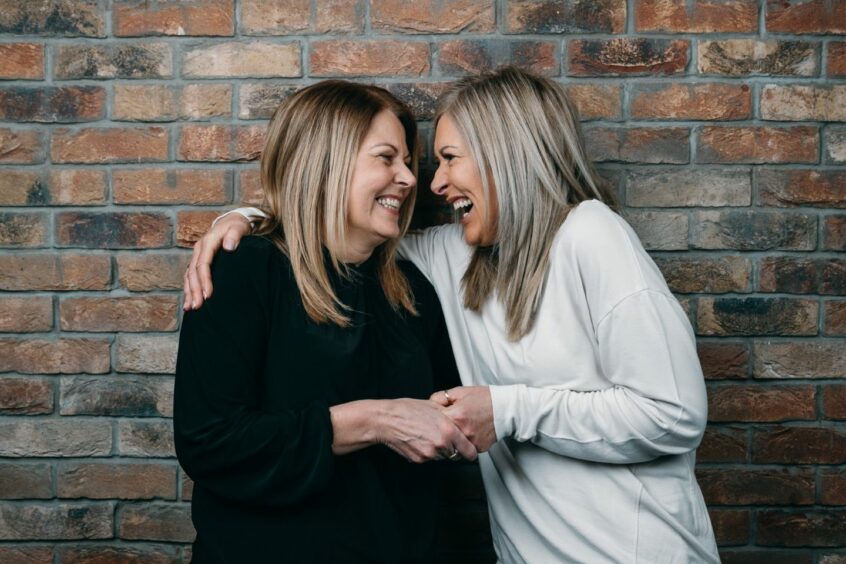 © Andrew Cawley
© Andrew Cawley